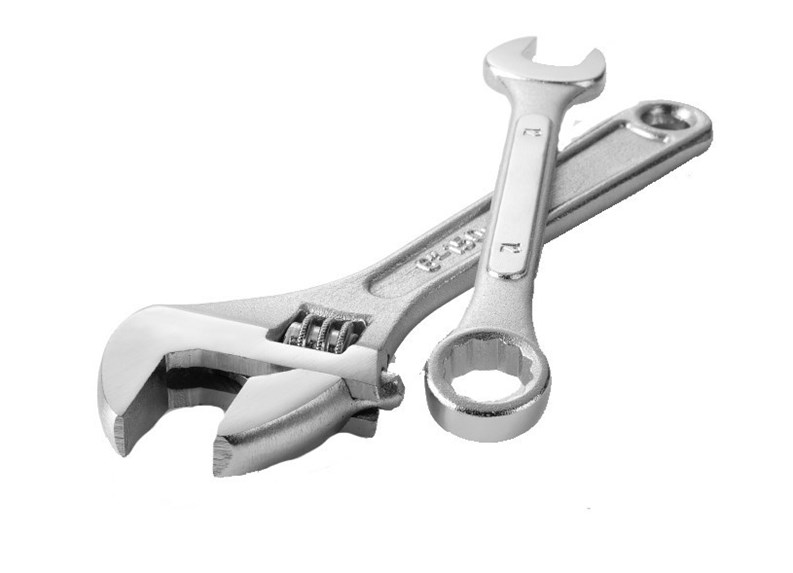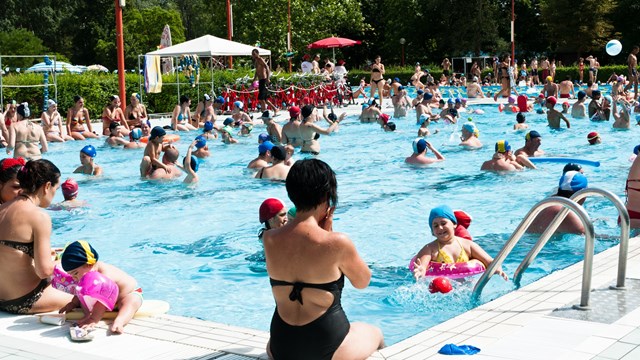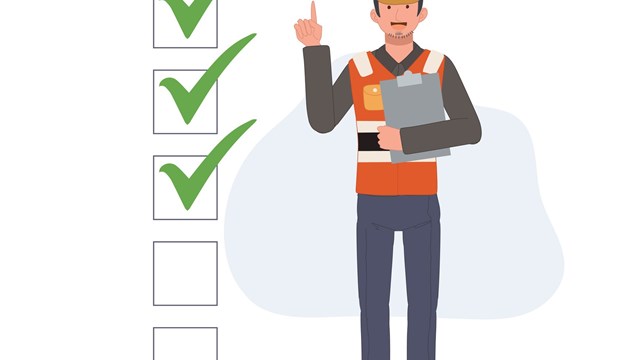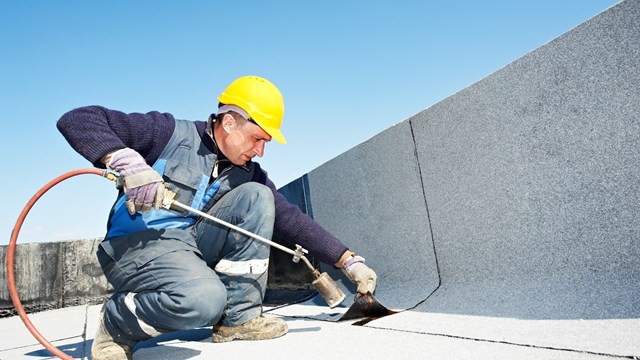It sounds like an urban legend, something that supposedly happened to your cousin’s friend’s cousin. A little girl swam to the drain at the bottom of the pool, sat on it, got stuck on it, and drowned. Only this really happened, in a hot tub in McLean, Virginia, in the summer of 2002. Two grown men finally managed to pull her out, breaking the drain in the process, but it was too late to save her.
Far from being an urban legend, this sort of thing does happen. Drowning is the number two killer of children under the age of 14 in the United States. In the last twenty years, there have been almost 150 incidents of entrapment—getting stuck in a drain’s suction of a pool or hot tub—resulting in 36 deaths. Two deaths a year doesn’tseem like much in a country of 280 million people. But those 36 deaths were entirely preventable, and therein lies the tragedy.
The girl who drowned in Virginia in 2002 wasn’t just any little girl. Seven-year-old Virginia Graeme Baker—Graeme to her friends and family—was on both the swim team and the diving team. She had been swimming unassisted since age three. She was one of five sisters. And, most importantly, she was the granddaughter of Jim Baker, George H.W. Bush’s secretary of state, and a man with the influence to ensurethat what happened to Graeme would never happen again.
After three years of lobbying by Baker; his daughter-in-law, Nancy Baker; and the association Safe Kids Worldwide, Congress passed the so-called Virginia Graeme Baker Act, which then President George W. Bush signed into law on December 19, 2007.
From the point of view of homeowner associations in New England, the most important part of the legislation is this sentence: “Public pools or spas that are not in compliance by December 17, 2008, may not open for use until compliant.”
Condos had the option of waiting a year to implement the new directives. But the waiting period is now over. Condos are now facing three options: get compliant, open without being compliant, or don’t open.
New Standards
So we know pools must be compliant to open—legally, that is. What exactlydoes the new law stipulate?
First, the act instituted a safety standard for anti-entrapment drain covers. It is now illegal to make, sell, or distribute drain covers that are not specially designed to prevent body/limbor hair entrapment.
“As of December 19, 2008, all operating public pools and spas must have drain covers that meet the ANSI/ ASME A112.19.8–2007 standard on every drain and grate,” according to the Consumer Product Safety Commission (CPSC), the federal agency that oversees enforcement of the act. (A list of approved manufacturers is available here: http://www.cpsc.gov/businfo/draincman.html).
The new drain covers better regulate the flow of water, and have been testedto ensure that they do not act as, in effect, magnets for swimmers.
Second, all public pools must have automatic shut-off valves for their drains. Just as trains and subway cars have emergency brake switches in every car, so pools must make it easy for bystanders to kill the suction to a drain. It took two grown men ten minutes to get Virginia Graeme Baker out of the hot tub that fateful day. Had the hot tub had a switch-off valve, hersister could have saved her easily.
How do you know if your condo is compliant? Easy: unless your pool was fitted with the new drain covers in the last few months, it’s not.
“They need a special drain cover that’s brand new, that’s just being made, so if they haven’t had a new drain cover in six months, they’re not in compliance,” says Walter Perry, assistant regional service manager for the Association of Pool and Spa Professionals, in Concord, New Hampshire. “There’s no grandfather clause to this.”
He urges condo associations to contract with their pool vendors now, to ensure a smooth opening come Memorial Day.
“The condo would have to get documentation that it’s in compliance,” he says.
While all pools are different, condominium complexes tend to have the same kind of outdoor pool. An indoorpool at a YMCA that was built 50 years ago and has drains big enough to suck in a golden retriever may have to spend a lot to get compliant, Perry says. Not so, the usual condo.
“If they have a standard outdoor pool, with vinyl lining, it shouldn’t be expensive,” Perry says—about $5,000 for the drains and shut-off valves, plus the labor to install them. Installation, he notes, can be done without draining the pool by a technician in a scuba outfit. The pool also needn’t be dug up.
According to Anthony Sirianni, president of Stingl Products in Sterling, Virginia, a company that produces pool and spa safety devices, the new law isn’t meant to be a financial burden to the pool operators. Most basic installations to bring a pool into compliance are in the $2,000 to $3,000 range, he estimates.
Sirianni warns property managers not to be oversold by pool companies selling packages containing expensive “bells-and-whistles” when they're not necessary. "You don’t have to spend tens of thousands or a hundred-thousand dollars to comply with the new law," says Sirianni, who also advises management to make sure they check with competent pool professionals because of the volume of misinformation aboutthe law's requirements.
What could be expensive is non-compliance.
Fines under the initial legislation were capped at a maximum threshold of $1.8 million per violation. However, Sirianni notes, fines have been increased by Congress to upwards of $15 millionper occurrence.
Willful non-compliance could also involve criminal penalties, including fines or imprisonment.
Scary enough language, but no scarierthan the FBI anti-piracy warning that graces your screen before your DVD rental. Does the act have teeth?
Enforcement Weak
“The enforcement is not really there,” says Perry. Federal agencies lack tentacleslong enough to thoroughly inspect condo pools in New England, and states don’t waste precious resources enforcing federal law. “On the other hand, the liability is so great that if you do have an accident, you’re down the river.”
Against this backdrop, there are troubling and widespread reports that some—and perhaps many—condos will open their pools this spring without the mandated anti-entrapment safety devices.
“I think you’re getting it on both ends of the spectrum,” says Dave Minetti, branch manager at South Central Pool Supply in North Andover, Massachusetts. “We saw it with indoor pools in December.”
Some inspectors will give enforcement high priority, and some won’t, Minetti predicts. Enforcement “will be all over the place, but it will be on the minds of local officials,” he says.
Scott Wolfson, a spokesman for the Consumer Product Safety Commission, lays out a strategy for enforcement. “We set out three key areas on which we focus the most: inground spas, wading pools, and other pools that are designed for children.”
So condos that have kiddie pools and/or spas should take note.
“Having the Consumer Product Safety Commission as an overseer, they are not going to just go away,” he says. “They’re going to keep corresponding with local inspectors.”
Wolfson concedes that his agency is not large enough to directly enforce the law, but echoes Minetti’s point about liaising with local inspectors.
“We need help from those that are close to pools,” Wolfson says. “What we are seeking to do is create partnerships. We’re hoping to work with as many states and communities as we can. Health professionals do sanitation checks of pools. We’re hopeful that when they check for sanitation, they check and see that the right drain covers are in place.”
Insurance Company Involvement
Perry suggests that the real policing of the act will be done by the insurance companies, who hold considerable swayover condominums.
“We don’t know yet, but insurance companies will be the ultimate enforcers,” he says.
As of early February insurance underwriters were still formulating their exact response to non-compliant pools, but it's expected to be extremely tough, according to Chris Snow, commercial account executive with HUB International New England, LLC, in Portsmouth, New Hampshire.
"Upon inspection of the property if there is a pool, they [underwriters] will make a mandatory recommendation to have the pool become compliant with the law. If the association fails to do so,it could lead to [policy] cancellation," he says.
With insurance cancellation a distinct possibility, it’s prudent for boards to arrange for their pools to be in compliance—if not by the opening, then as soon as logistically possible.
“I think a lot of condominiums and apartment complexes and small clubs are putting it on the back burner, and they shouldn’t,” Minetti says. “Supply is going to be an issue. It already is. Start as early as you can.”
Indeed, the handful of companies that manufacture the new drains and shut-off valves already have the items on backorder, adding another obstacle to compliance.
“Everybody’s for it, because it’s about safety,” says Perry. “The negative is just beginning—getting the right products installed, educating people. It’s not about somebody tryingto enrich themselves.”
When you consider that Virginia Graeme Baker—and she’s hardly the only casualty—would still be alive if there were basic safety measures in place, it’s a no-brainer for a board to try to comply with the law. But if they don’t—and if, God forbid, tragedy strikes—that’s not something D&O insurance covers for board members who think they can fly under the radar.
“You’re going to be in court,” Perry says. “You’re going to be in jail.”
Greg Olear is a freelance writer and afrequent contributor to New England Condominium magazine.







Comments
Leave a Comment